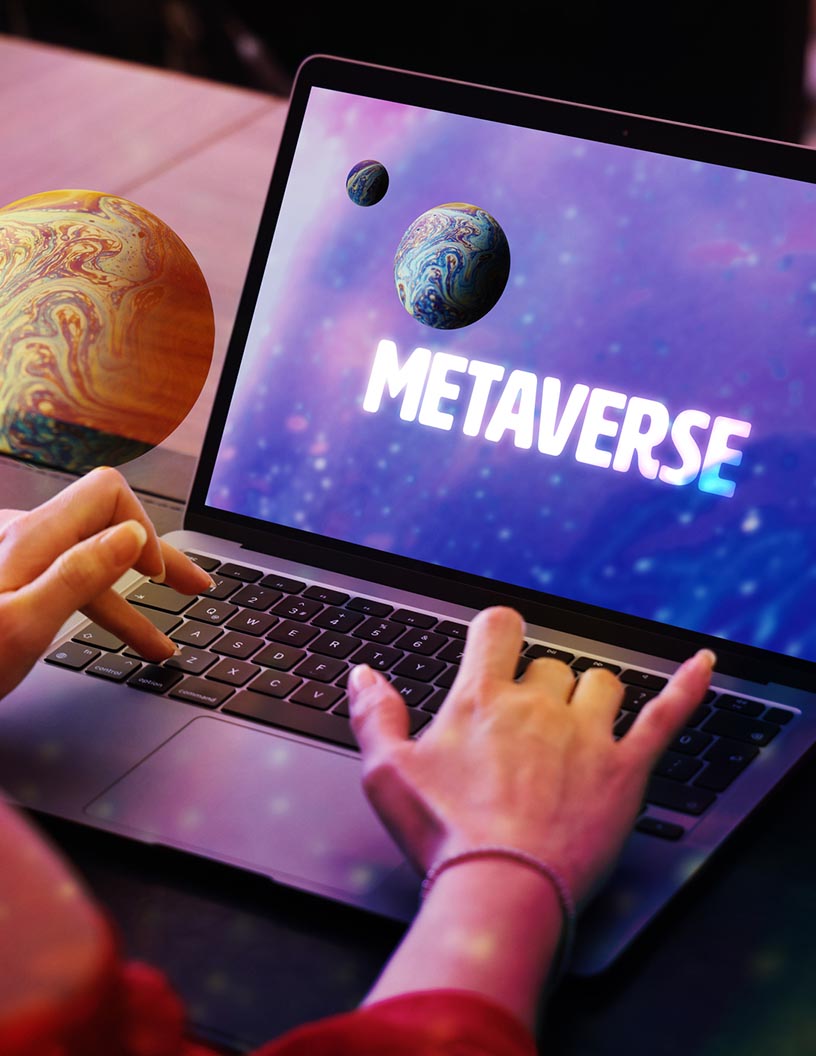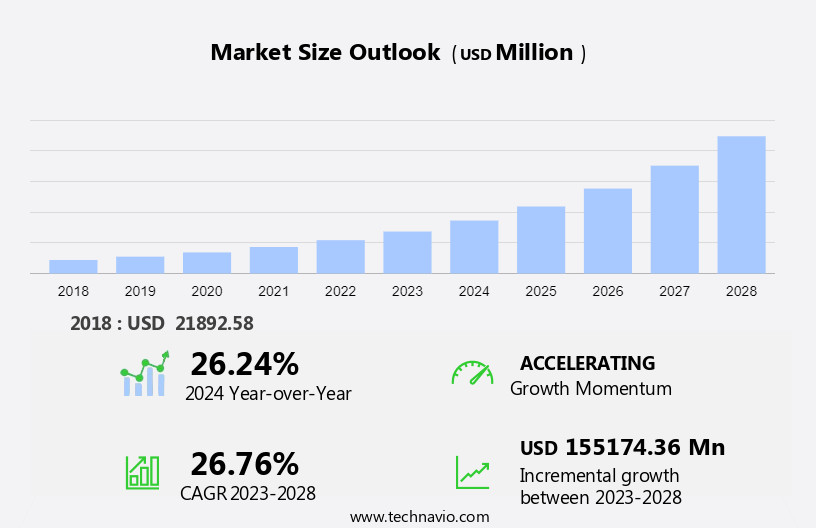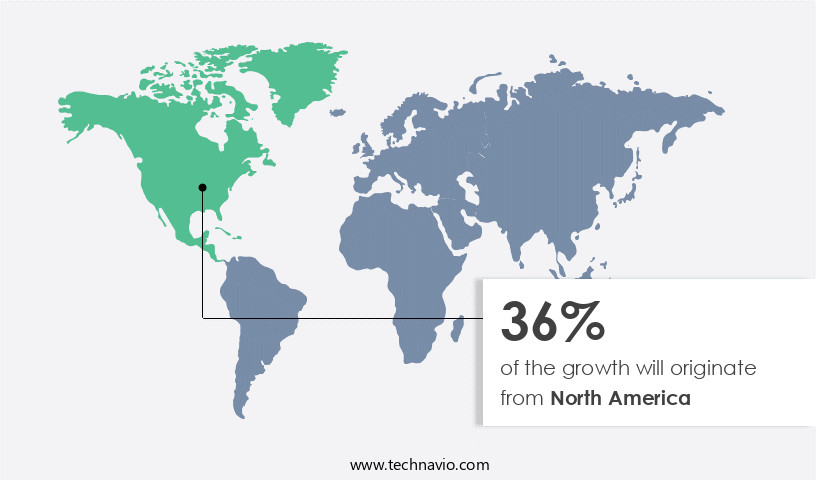Metaverse Market in Travel and Tourism Market Size 2024-2028
The metaverse market in travel and tourism market size is forecast to increase by USD 155.17 billion at a CAGR of 26.76% between 2023 and 2028. In the dynamic realm of technology, the metaverse market in travel and tourism is experiencing significant growth. Key drivers include the surging demand for great technologies such as Augmented Reality (AR) and Virtual Reality (VR), which offer unprecedented experiential opportunities for travelers. Furthermore, the metaverse's application in travel and tourism is on the rise, with developments in this sector revolutionizing the way we explore and experience destinations. However, this burgeoning market is not without challenges. High development costs associated with AR and VR applications pose a significant barrier to entry for many players. Despite these hurdles, the metaverse's potential to transform travel and tourism is undeniable, making it an exciting and innovative space to watch.
The market in the Travel and Tourism industry is experiencing significant advancements with the integration of Augmented Reality (AR), Virtual Reality (VR), and Mixed Reality (MR) technologies. Metaverse devices such as VR headsets, MR headsets, smart glasses, and smart helmets are transforming the gaming experience for tourists, offering tailored metaverses and digital twins for great exploration. Investments in the Metaverse sector are on the rise, driven by the potential for additional revenue and deployable use cases in the travel industry. The medical sector is also exploring the benefits of Metaverse technology for training and simulation purposes. Advancements in 3D modeling and the use of Unreal Engine are enhancing the realism and interactivity of Metaverse experiences.
However, challenges such as eye strain, dizziness, nausea, myopia, low resolution, and virtual sickness remain concerns for users. Electromagnetic frequency emissions from Metaverse devices are another issue that requires attention. As the Metaverse market continues to evolve, timelines for human resource development and business performance optimization will be crucial for success. Blockchain technology is expected to play a role in securing transactions and ensuring data privacy in the Metaverse travel and tourism market. Overall, the Metaverse market holds immense potential for innovation and growth in the travel industry.
Market Segmentation
The market research report provides comprehensive data (region-wise segment analysis), with forecasts and estimates in "USD billion" for 2024-2028, as well as historical data from 2018-2022 for the following segments.
- Application
- AR
- MR
- Blockchain
- XR
- VR
- Component
- Hardware
- Software
- Services
- Geography
- North America
- Canada
- US
- Europe
- Germany
- UK
- APAC
- China
- South America
- Middle East and Africa
- North America
By Application Insights
The AR segment is estimated to witness significant growth during the forecast period. The metaverse market in travel and tourism is experiencing significant advancements with the integration of Augmented Reality (AR), Virtual Reality (VR), and Mixed Reality (MR) technologies. According to industry estimates, this sector is expected to witness substantial growth, driven by the adoption of HMDs (Head-Mounted Displays) such as VR headsets, MR headsets, smart glasses, and smart helmets. These technologies offer tailored metaverses for travelers, providing great gaming experiences and personalized explorations. Investments in the metaverse market are on the rise, with developments in the medical sector showcasing digital twins, blockchain, artificial intelligence (AI), and machine learning (ML) for healthcare providers.
Furthermore, advancements in programming and cybersecurity concerns are being addressed to ensure negligence and oversight are minimized. AR and VR technologies are revolutionizing traveler experiences by enabling real-time navigation and information, simplifying exploration in unfamiliar locales. The convergence of these technologies with AI and ML offers personalized experiences, enhancing traveler engagement. However, concerns regarding health effects, cybersecurity, regulations, defined standards, taxation, and experiential training are being addressed to ensure a seamless and safe user experience. For instance, preflight checks, integration, weapon training, and flight training simulations are being developed to ensure safety and efficiency in various sectors. In summary, the metaverse market in travel and tourism is undergoing significant advancements, driven by the adoption of AR, VR, and MR technologies, investments, and tailored metaverses. Addressing concerns regarding health effects, cybersecurity, regulations, and defined standards is crucial for the continued growth and success of this sector.
Get a glance at the market share of various segments Request Free Sample
The AR segment was valued at USD 7.39 billion in 2018 and showed a gradual increase during the forecast period.
Regional Insights
North America is estimated to contribute 36% to the growth of the global market during the forecast period. Technavio's analysts have elaborately explained the regional trends and drivers that shape the market during the forecast period.
For more insights on the market share of various regions Request Free Sample
The metaverse market in North America's travel and tourism industry is experiencing substantial expansion, fueled by technological innovations, escalating consumer preference for great experiences, and a thriving tourism sector. Metaverse devices, such as virtual reality (VR) and augmented reality (AR) headsets, are revolutionizing the way travelers explore destinations, plan trips, and interact with tourism-related content. However, the use of these devices may result in injuries, headaches, eye strain, dizziness, nausea, and myopia, collectively referred to as "virtual sickness." To mitigate these issues, timelines for device usage and human resource training are essential. Investment from major technology and entertainment brands in metaverse platforms and experiences is driving innovation in the travel and tourism sectors.
Furthermore, virtual tours of iconic landmarks, great travel planning tools, and virtual reality-based entertainment experiences are gaining popularity. Brands and advertisers are capitalizing on these trends through marketing campaigns, virtual events, and video games. Game developers are creating deployable use cases, including gaming applications and interactive 3D media, to enhance business performance. AR technology is particularly noteworthy, as it offers participation effects that blur the line between the real world and the metaverse. Gaming applications, such as mobile-based and tablet-based portable gaming, are increasingly popular, providing a more engaging and interactive experience for users. However, concerns regarding electromagnetic frequency emissions from metaverse devices may impact consumer adoption.
Furthermore, 3D modeling and Unreal Engine are essential tools for creating great metaverse experiences. These technologies enable the development of high-resolution, realistic environments, animated objects, and playing fields that mimic real-world climate. As the metaverse market continues to evolve, it is expected to generate additional revenue streams for businesses and create new growth opportunities.
Our researchers analyzed the data with 2023 as the base year, along with the key drivers, trends, and challenges. A holistic analysis of drivers will help companies refine their marketing strategies to gain a competitive advantage.
Market Driver
The increasing demand for AR and VR technology is the key driver of the market. The Metaverse market in the travel and tourism industry is experiencing notable advancements, driven by the integration of AR and VR technologies. According to industry estimates, this sector is expected to witness substantial investments in the coming years. Metaverse, a blend of AR, VR, and MR technologies, offers unparalleled experiences through VR headsets, MR headsets, smart glasses, and smart helmets. In the travel industry, metaverse applications include creating digital avatars, VR tours, and interactive hotel elements. These tailored metaverses provide personalized experiences, allowing healthcare providers to offer experiential training, preflight checks, and simulations for weapon training and flight training.
Furthermore, the convergence of HMDs and health concerns is also paving the way for advancements in the medical sector, with the development of digital twins, AI, and ML. However, the Metaverse market also faces challenges, such as cybersecurity concerns, regulations, and defined standards. Negligence and oversight from developers can lead to potential risks, making it crucial for cybersecurity measures and taxation policies to be put in place. As the market continues to evolve, it is essential to address these concerns and ensure convergence within the industry.
Market Trends
The rise in developments in use of metaverse in travel and tourism industry is the upcoming trend in the market. The metaverse market in travel and tourism is experiencing substantial growth, with estimations suggesting that AR, VR, and MR technologies will revolutionize the sector. Companies are investing in metaverse solutions, such as VR headsets, MR headsets, smart glasses, and smart helmets, to offer tailored gaming experiences and enhance customer engagement. LynKey International Ltd., a tourism startup, recently announced a USD 8 billion project to tokenize and offer NFT and metaverse solutions for the industry. This project utilizes blockchain, AI, and ML to create personalized experiences for travelers. Advancements in the metaverse are not limited to the travel and tourism sector.
Furthermore, the medical sector is also exploring the potential of digital twins and simulations for experiential training and preflight checks. However, as technology converges, cybersecurity concerns and the need for defined standards, taxation, and regulations become increasingly important. Developers must ensure negligence and oversight are minimized, and cybersecurity measures are in place to protect users' data. Moreover, the integration of metaverse technologies in travel and tourism presents opportunities for new revenue streams, such as weapon training, flight training, and simulations. HMDs are becoming essential tools for healthcare providers to offer great and effective treatments. However, the implementation of these technologies requires careful programming and integration to ensure a seamless user experience.
Overall, the metaverse market in travel and tourism is poised for significant growth, with the potential to transform the way we travel and experience new places.
Market Challenge
The high development costs associated with AR and VR apps is a key challenge affecting the market growth. The Metaverse market in the travel and tourism industry is experiencing significant advancements with the integration of Augmented Reality (AR), Virtual Reality (VR), and Mixed Reality (MR) technologies. Estimations suggest that the use of VR headsets, MR headsets, smart glasses, and smart helmets in this sector will lead to substantial investments. Tailored metaverses offer personalized gaming experiences, allowing healthcare providers to utilize digital twins for experiential training and preflight checks. AR and VR technologies enable the creation of great and interactive environments, enhancing the travel experience. The cost of developing such content, including the use of 360-degree cameras and computer graphics, ranges from USD 50,000 to USD 100,000.
Furthermore, advancements in AI and ML are further enriching these experiences by providing customized recommendations and simulations. However, the development of metaverses in travel and tourism comes with cybersecurity concerns and regulatory oversight. Negligence and lack of defined standards can lead to potential risks. Taxation and integration with existing systems are also crucial considerations. In the gaming sector, metaverses offer weapon training, flight training, and simulations, providing a more engaging and interactive experience. The convergence of HMDs and health concerns is another area of focus, with potential applications in medical sector training and rehabilitation. Despite these challenges, the future of metaverses in travel and tourism is promising, with potential applications in experiential training, preflight checks, and integration with existing systems. Developers must address cybersecurity concerns and regulatory compliance to ensure a successful and secure implementation.
Exclusive Customer Landscape
The market forecasting report includes the adoption lifecycle of the market, covering from the innovator's stage to the laggard's stage. It focuses on adoption rates in different regions based on penetration. Furthermore, the report also includes key purchase criteria and drivers of price sensitivity to help companies evaluate and develop their market growth analysis strategies.
Customer Landscape
Key Companies & Market Insights
Companies are implementing various strategies, such as strategic alliances, partnerships, mergers and acquisitions, geographical expansion, and product/service launches, to enhance their presence in the market.
Accenture Plc- The company offers metaverse in travel and tourism, such as XR, for unique traveler experiences.
The market research and growth report includes detailed analyses of the competitive landscape of the market and information about key companies, including:
- Ariva Digital
- Infosys Ltd.
- LynKey International Ltd.
- Marriott International Inc.
- Metaverse Seoul
- Qatar Airways
- Rendezverse
Qualitative and quantitative analysis of companies has been conducted to help clients understand the wider business environment as well as the strengths and weaknesses of key market players. Data is qualitatively analyzed to categorize companies as pure play, category-focused, industry-focused, and diversified; it is quantitatively analyzed to categorize companies as dominant, leading, strong, tentative, and weak.
Research Analyst Overview
The market in travel and tourism is an emerging trend, offering unique experiences to consumers. This virtual environment enables tourists to explore destinations in a more great and interactive way. Heads of travel and tourism companies are recognizing the potential of Metaverses in enhancing customer engagement and generating new revenue streams. Metaverses in travel and tourism provide a realistic and engaging experience, allowing users to visit various destinations, attend events, and even book accommodations. These virtual platforms offer a more personalized and convenient experience, as users can plan their trips, make reservations, and even interact with travel agents within the Metaverse.
Moreover, Metaverses provide an excellent opportunity for businesses to showcase their offerings more interactively and engagingly. For instance, hotels and resorts can offer virtual tours, allowing potential customers to explore their properties before making a booking. Similarly, travel agencies can offer customized travel packages, providing users with a more personalized and tailored experience. The Metaverse market in travel and tourism is poised to revolutionize the industry, offering a more great and interactive experience to consumers. Heads of travel and tourism companies are recognizing the potential of Metaverses and are investing in this technology to enhance customer engagement and generate new revenue streams.
|
Market Scope |
|
|
Report Coverage |
Details |
|
Page number |
160 |
|
Base year |
2023 |
|
Historic period |
2018-2022 |
|
Forecast period |
2024-2028 |
|
Growth momentum & CAGR |
Accelerate at a CAGR of 26.76% |
|
Market growth 2024-2028 |
USD 155.17 billion |
|
Market structure |
Concentrated |
|
YoY growth 2023-2024(%) |
26.24 |
|
Regional analysis |
North America, Europe, APAC, South America, and Middle East and Africa |
|
Performing market contribution |
North America at 36% |
|
Key countries |
US, Canada, China, Germany, and UK |
|
Competitive landscape |
Leading Companies, Market Positioning of Companies, Competitive Strategies, and Industry Risks |
|
Key companies profiled |
Ariva Digital, Infosys Ltd., LynKey International Ltd., Marriott International Inc., Metaverse Seoul, Qatar Airways, and Rendezverse |
|
Market dynamics |
Parent market analysis, market growth inducers and obstacles, market forecast, fast-growing and slow-growing segment analysis, COVID-19 impact and recovery analysis and future consumer dynamics, market condition analysis for the forecast period |
|
Customization purview |
If our market report has not included the data that you are looking for, you can reach out to our analysts and get segments customized. |
What are the Key Data Covered in this Market Research and Growth Report?
- CAGR of the market during the forecast period
- Detailed information on factors that will drive the market growth and forecasting between 2024 and 2028
- Precise estimation of the size of the market and its contribution of the market in focus to the parent market
- Accurate predictions about upcoming market growth and trends and changes in consumer behaviour
- Growth of the market across North America, Europe, APAC, South America, and Middle East and Africa
- Thorough analysis of the market's competitive landscape and detailed information about companies
- Comprehensive analysis of factors that will challenge the growth of market companies
We can help! Our analysts can customize this market research report to meet your requirements. Get in touch




